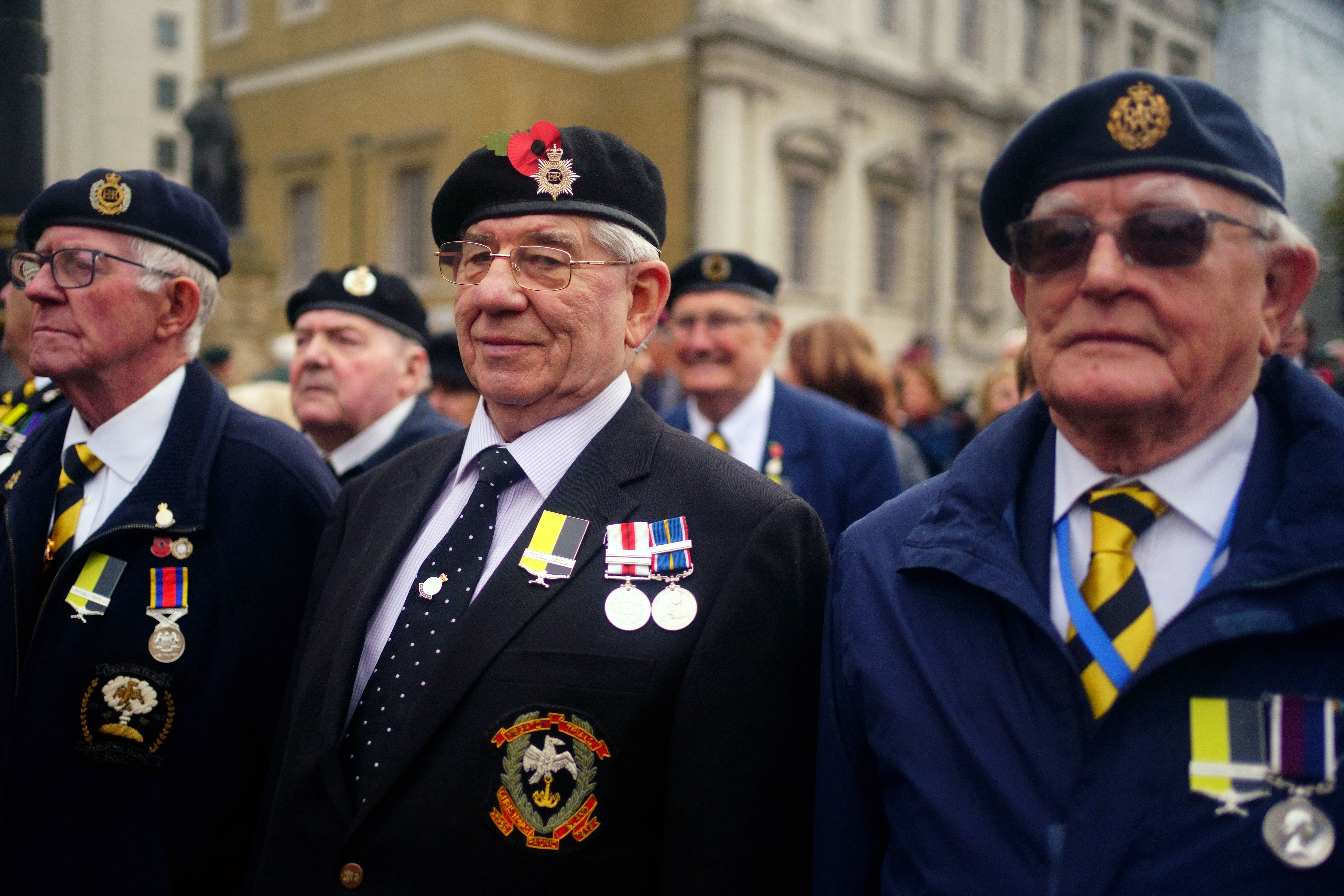Nuclear bomb test veterans to wear new medal on Remembrance Sunday
Around 22,000 British soldiers and civilians were involved in experimenting with plutonium and hydrogen bombs.

Veterans exposed to the effects of nuclear bombs during the UK’s testing programme will be given a new medal to wear on Remembrance Sunday.
Around 22,000 people were involved in experimenting with atomic and hydrogen bombs between 1952 and 1967 putting them at risk of high levels of radiation.
After 70 years of waiting for recognition, they will be given a medal depicting an atom surrounded by olive branches ahead of the service at the Cenotaph on November 12.
Labrats International, which represents those affected by nuclear tests, said veterans will be proudly wearing the medal despite believing recognition “took longer than it should have”.
Founder Alan Owen told the PA news agency: “This is a unique group of people who saw a nuclear explosion and for somebody like myself who is the son of a nuclear test veteran, I can’t even comprehend seeing that.
“People having to stand and watch it, it wouldn’t happen today, to know they have actually seen it, experienced it and felt it, felt the heat, felt the blast, is something incomprehensible to the younger generation.
“For the first time ever this year they will actually have their own medal proudly on their chest to march with at the Cenotaph.”
The medal, which also bears the King’s face, commemorates the contributions made by veterans, scientists and local employees from the UK, Australia, New Zealand, Fiji and Kiribati.
Between 1,500 and 2,000 eligible people are thought to be alive today, though the honour can also be awarded posthumously to veterans’ families.
Over 1,600 people have applied for the medal so far, 1,200 of whom are veterans, Labrats International said.
It is important to remember the contributions of the veterans, scientists and staff who worked on Britain’s nuclear programme.
The UK became the world’s third nuclear power on October 3, 1952, with the success of Operation Hurricane – the detonation of a plutonium bomb on Montebello Islands in Australia.
More tests took place in the following decades at locations including Emu Field and Maralinga in Australia, Christmas and Malden Islands in Kiribati, and Nevada in the US.
The most notorious bomb, Operation Grapple Y, in 1958, was more than 100 times more powerful than the explosions at Hiroshima and Nagasaki.
Johnny Mercer, Minister for Veterans’ Affairs, said: “As thousands flock to the cinemas to watch Oppenheimer, it’s important to remember the contributions of the veterans, scientists and staff who worked on Britain’s nuclear programme.
“Our nuclear deterrent continues to underpin both our security and the security of our Nato allies and this new medal is a fitting tribute to all those who worked to develop this vital defence.”
Defence Secretary Ben Wallace said: “I am delighted that this commemorative medal is rightfully given to our nuclear test veterans, who have made an invaluable contribution to the safety and security of the UK, and who we recognise and value for their service to our nation.”
Bookmark popover
Removed from bookmarks